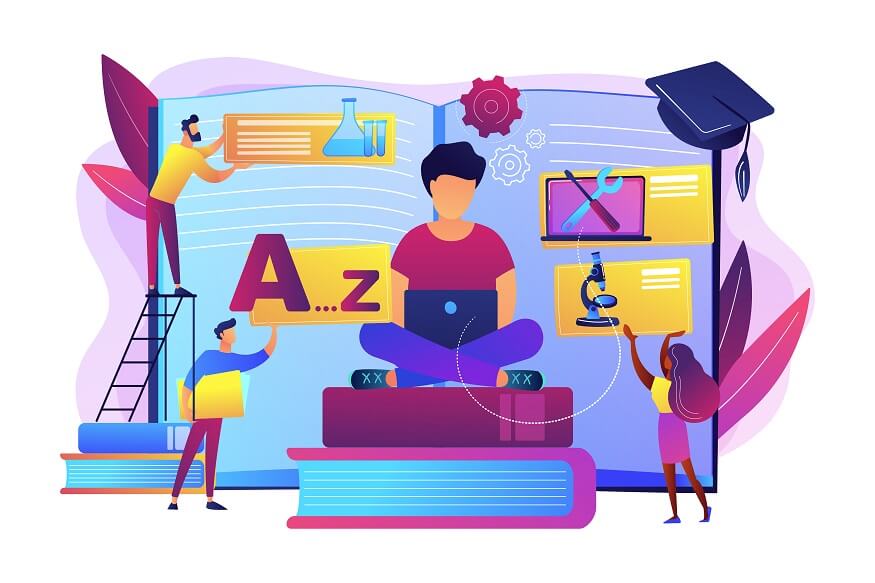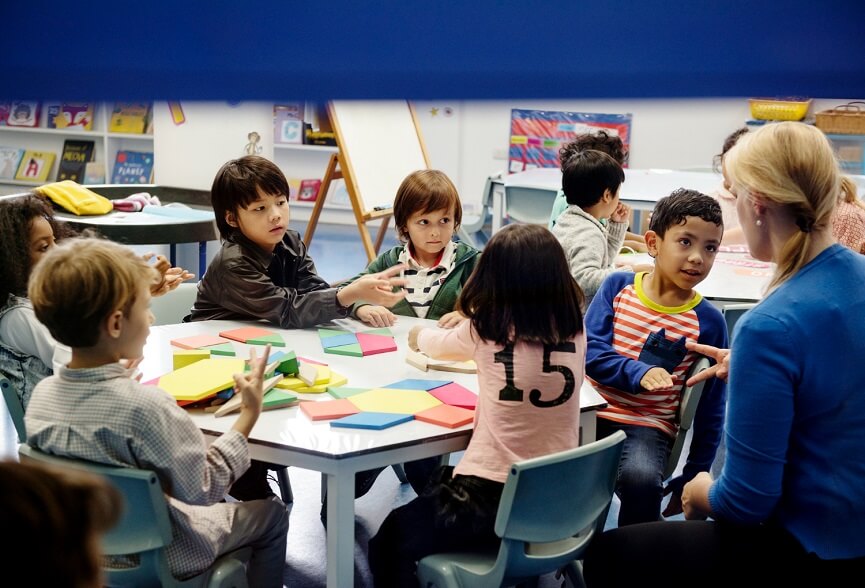Exploring School Learning: What Kids Learn in Pre-Primary, Primary, and Secondary School
By Billabong February 5, 2024

Imagine a roadmap that guides what kids learn in school. From the early days of preschool, where curiosity sprouts, to the elementary years filled with exciting discoveries, and through the high school adventure, where knowledge flourishes, it’s all tied to the importance of curriculum. This roadmap ensures that every step in their learning path matters, building a strong foundation for the future. Join us on this simple and enlightening exploration where we will understand the significance of education curriculums in shaping the minds of our young learners.
Setting the Stage: Pre-Primary Education, Its Stages and Importance
Pre-primary education is more than just a gateway; it’s the foundation upon which a child’s love for learning is built. This early stage, often referred to as pre-primary education, lays the groundwork for a child’s future academic endeavours.
In the initial stages of pre-primary education, children are introduced to the wonders of learning through interactive and play-based activities. These activities serve as the building blocks for essential skills and social development. The importance of primary education becomes evident during these formative years, as educators focus on nurturing curiosity, instilling basic social skills, and sparking an eagerness to explore the world.
At this stage, the curriculum plays a pivotal role in shaping the educational experience. A well-designed curriculum for pre-primary education integrates a variety of activities to cater to diverse learning styles. It ensures that children are exposed to a broad range of foundational concepts, including language development, basic math skills, and social interactions. The importance of curriculum lies in creating a structured yet engaging environment that fosters a positive attitude towards learning.
Building Blocks: Primary Education and Its Stages and Importance
Moving on to the next phase, primary education, we witness the transition from the exploratory nature of pre-primary to more structured learning experiences. Primary education and its stages form the building blocks of a child’s academic knowledge, encompassing crucial years of development.
In the foundational years of primary education, the focus shifts to imparting essential academic skills such as reading, writing, and arithmetic. This is where the importance of primary education truly shines. Beyond the three Rs, primary education aims to cultivate critical thinking, problem-solving abilities, and teamwork. These skills serve as the foundation for a well-rounded education, preparing students not only for academic challenges but also for navigating real-life situations.
The curriculum in primary education is meticulously designed to cover a range of subjects. It introduces students to a broader academic spectrum, laying the groundwork for future learning. The role of curriculum in this stage is to provide a structured framework to make sure students receive a thorough education encompassing various disciplines.
Beyond Basics: Secondary Education, Its Stages, and Its Importance
Transitioning from primary to secondary education marks a critical juncture in a student’s academic journey. Secondary education encompasses a series of stages that go beyond the basics, allowing students to explore subjects in greater depth and sophistication.
In the early stages of secondary education, the emphasis is on providing a broader understanding of subjects, allowing students to discover their interests and strengths. Here, the importance of secondary education comes to the forefront. It serves as a bridge, connecting the foundational knowledge acquired in primary education to more specialised and advanced learning.
As students’ progress through the stages of secondary education, they are introduced to a more specialised curriculum. The need for and importance of secondary education become evident as students prepare for higher education or entry into the workforce. Beyond subject mastery, secondary education equips students with critical life skills such as time management, research abilities, and independent thinking.
5 Reasons Why Curriculum is Important
Below is listed the importance of curriculum, which is like a roadmap that guides students and teachers through the learning journey, ensuring a comprehensive and effective education:
- Structured Learning Experience
- Fostering Critical Thinking
- Adapting to Diverse Learning Styles
- Preparing for the Future
- Continuous Improvement
A curriculum provides a clear structure for learning, mapping out the subjects and topics to be covered. This structured approach is particularly crucial in the foundational years, as it lays the groundwork for future academic success. It helps students transition from the exploratory nature of pre-primary to more structured learning environments.
Beyond rote memorization, a good curriculum encourages students to think critically, solve problems, and analyse information. These skills are not just valuable in a classroom setting but are essential for navigating the complexities of the real world. A curriculum that fosters critical thinking equips students with tools they can use throughout their lives.
Recognising and accommodating diverse learning styles is a cornerstone of effective education. A well-crafted curriculum ensures that every student, regardless of their unique learning style, has the opportunity to thrive. It promotes inclusivity and caters to individual strengths and preferences, making education accessible to all.
As students’ progress to higher education or enter the workforce, the importance of curriculum becomes even more apparent. A curriculum that provides a strong foundation equips students with the skills and knowledge needed for success in their chosen paths. It serves as a bridge, seamlessly connecting the learning experiences of earlier years to the challenges and expectations of the future.
The dynamism of society, technology, and educational practices necessitates an adaptable curriculum. A curriculum that evolves with the times reflects a commitment to continuous improvement. It ensures that students receive relevant and up-to-date information, preparing them for the ever-changing challenges and opportunities of the future.
The educational journey from pre-primary education through primary education to secondary education is a crucial chapter in shaping the minds of future leaders. Each stage, which is why a well-structured curriculum is essential, has a special function in the development of young minds. Throughout this journey, the curriculum acts as a guiding force, ensuring a comprehensive and effective learning experience.
We at Billabong High International School recognise the importance of each stage, and the role of the curriculum as it is essential in fostering an environment where young minds can thrive and ultimately shape the future. To get more information, contact us today!
Latest Blogs
- Understanding the Science behind the Day and Night Cycle
- Toddler Tantrums: Understanding and Tackling Toddler Outbursts
- Tips to attempt ICSE Class 10 Board Exam – Maths
- The Role of Yoga in Creating a Balanced Student Life
- School Life: A Journey of Growth, Learning, and Transformation






